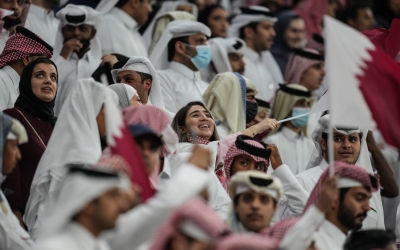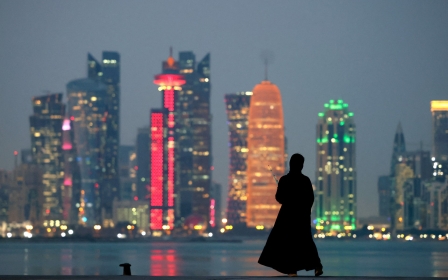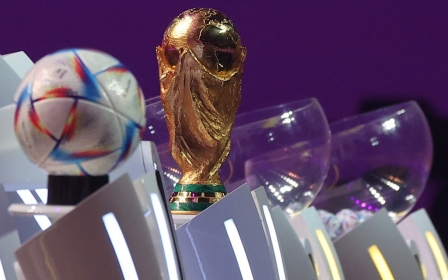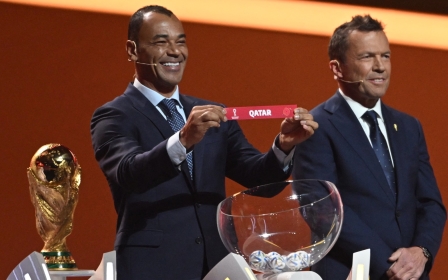Qatar reinstates Zidane headbutt statue to 'promote mental health'
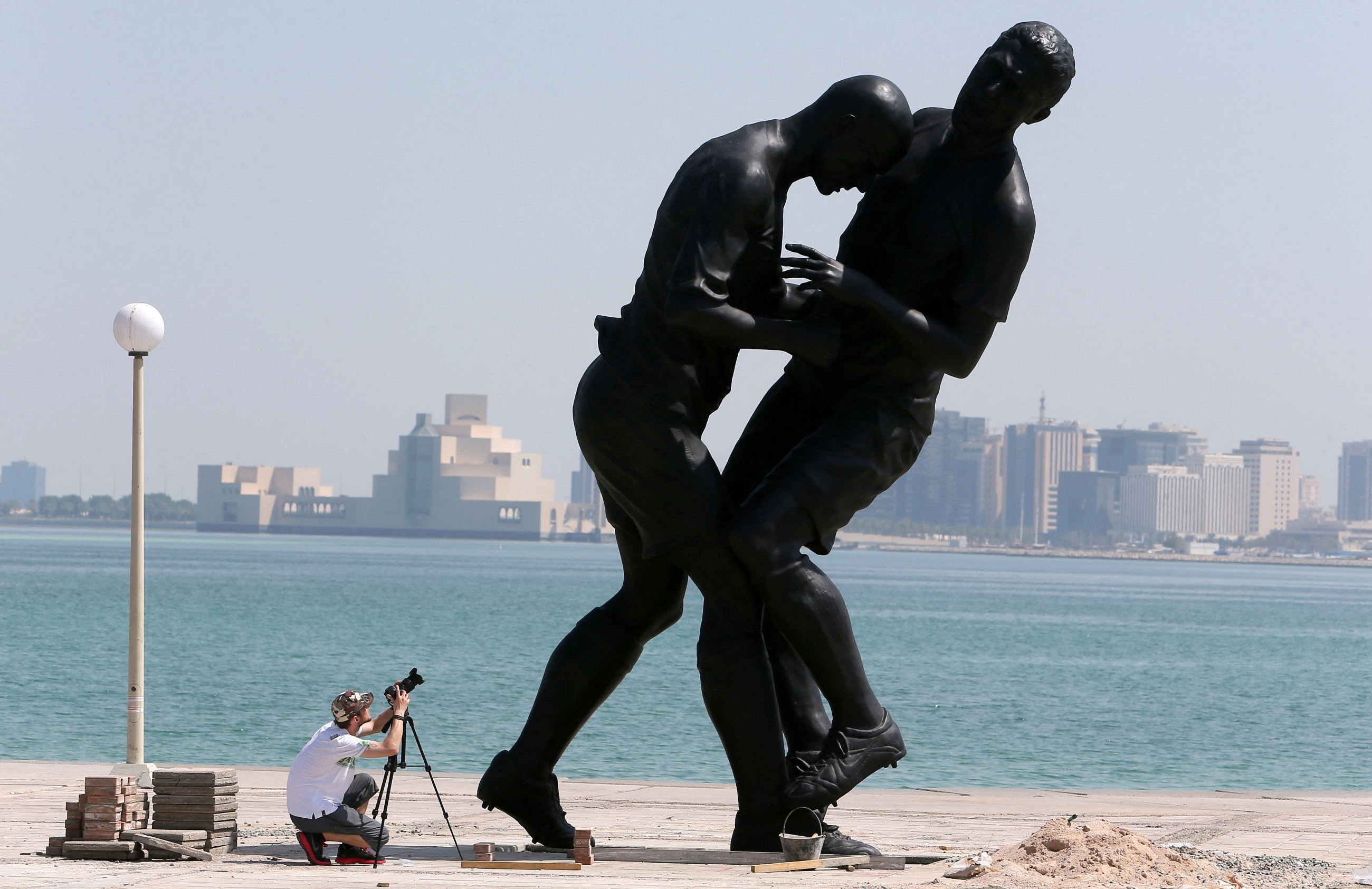
A controversial statue of former French-Algerian football legend Zinedine Zidane infamously headbutting an opponent at the 2006 World Cup final has been reinstalled in Qatar.
The five-metre bronze sculpture, named Coup de Tete, was removed from display in the capital Doha’s Corniche promenade days after it was unveiled in 2013, following criticism that it encouraged violence and promoted idolatry.
Many Muslims believe depictions of human forms are forbidden. While public statues can be found in several Muslim countries, they are particularly rare in the Gulf region.
"Evolution happens in societies. It takes time and people may criticise something to begin with, but then understand it and get used to it," said Sheikha al-Mayassa Al Thani, chairperson of Qatar Museums and sister of the emir of Qatar.
The official added that the original site of the Corniche was “not right”, and it would now be rehoused at a new sports museum in the capital, ahead of the World Cup in the Gulf country later this year.
The sculpture was created by Algerian-born French artist Adel Abdessemed. It shows the moment Zidane headbutted Italy’s Marco Materazzi during extra time in the 2006 World Cup final. The French playmaker was sent off, and Italy went on to win via a penalty shootout.
Al-Mayassa told reporters that the aim of displaying the statue was to promote conversations about "stress on athletes… and the importance of dealing with issues of mental health".
"Zidane is a great friend of Qatar. And he's a great role model for the Arab world," she said. "Art, like anything else, is a matter of taste. Our goal is to empower people."
The 49-year-old former football star won the UEFA Champions League and World Cup, and was three times voted FIFA World Player of the Year. In 2010, he became an official ambassador for Qatar’s bid to host the World Cup.
This year's tournament, the first in an Arab or Muslim country, has been marred by human rights concerns around migrant workers and LGBTQ rights.
In December, Middle East Eye travelled to Doha to report on Qatar’s preparations for the tournament.
MEE found that large swaths of the capital remained under construction, with migrant labourers working hard to meet fast-approaching deadlines.
Foreign workers painted a mixed picture of life in Qatar. Some said that labour reforms enacted by the government, such as reducing the number of working hours during summer months, had benefited them.
However, several workers said they were still facing exploitation from employers, and were afraid to utilise the complaints systems through fear of impacting their visa status.
This article is available in French on Middle East Eye French edition.
Middle East Eye delivers independent and unrivalled coverage and analysis of the Middle East, North Africa and beyond. To learn more about republishing this content and the associated fees, please fill out this form. More about MEE can be found here.


